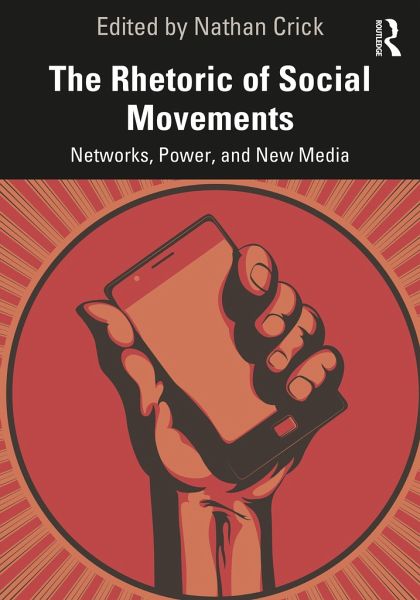
The Rhetoric of Social Movements
Networks, Power, and New Media
Herausgegeben: Crick, Nathan

PAYBACK Punkte
22 °P sammeln!
This collection provides an accessible yet rigorous survey of the rhetorical study of historical and contemporary social movements and promotes the study of relations between strategy, symbolic action, and social assemblage.Offering a comprehensive collection of the latest research in the field, The Rhetoric of Social Movements: Networks, Power, and New Media suggests a framework for the study of social movements grounded in a methodology of "slow inquiry" and the interconnectedness of these imminent phenomena. Chapters address the rhetorical tactics that social movements use to gain attention...
This collection provides an accessible yet rigorous survey of the rhetorical study of historical and contemporary social movements and promotes the study of relations between strategy, symbolic action, and social assemblage.
Offering a comprehensive collection of the latest research in the field, The Rhetoric of Social Movements: Networks, Power, and New Media suggests a framework for the study of social movements grounded in a methodology of "slow inquiry" and the interconnectedness of these imminent phenomena. Chapters address the rhetorical tactics that social movements use to gain attention and challenge power; the centrality of traditional and new media in social movements; the operations of power in movement organization, leadership, and local and global networking; and emerging contents and environments for social movements in the twenty-first century. Each chapter is framed by case studies (drawn from movements across the world, ranging from Black Lives Matter and Occupy to Greek anarchism and indigenous land protests) that ground conceptual characteristics of social movements in their continuously unfolding reality, furnishing readers with both practical and theoretical insights.
The Rhetoric of Social Movements will be of interest to scholars and advanced students of rhetoric, communication, media studies, cultural studies, social protest and activism, and political science.
Offering a comprehensive collection of the latest research in the field, The Rhetoric of Social Movements: Networks, Power, and New Media suggests a framework for the study of social movements grounded in a methodology of "slow inquiry" and the interconnectedness of these imminent phenomena. Chapters address the rhetorical tactics that social movements use to gain attention and challenge power; the centrality of traditional and new media in social movements; the operations of power in movement organization, leadership, and local and global networking; and emerging contents and environments for social movements in the twenty-first century. Each chapter is framed by case studies (drawn from movements across the world, ranging from Black Lives Matter and Occupy to Greek anarchism and indigenous land protests) that ground conceptual characteristics of social movements in their continuously unfolding reality, furnishing readers with both practical and theoretical insights.
The Rhetoric of Social Movements will be of interest to scholars and advanced students of rhetoric, communication, media studies, cultural studies, social protest and activism, and political science.














